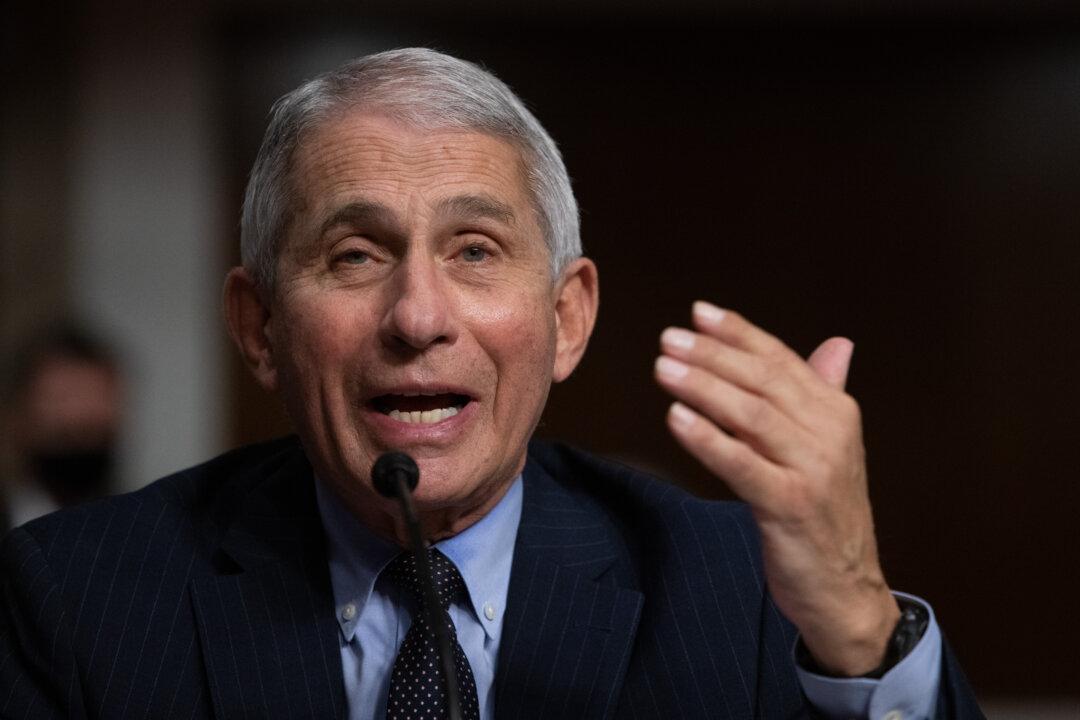Children will ‘probably’ have to get the COVID-19 vaccine for the United States to reach herd immunity against the CCP virus, Dr. Anthony Fauci said Thursday at a Senate hearing on the response to the pandemic.
“I have been saying lately, calculation, and it’s purely an estimate of 70 to 85 percent of the population. If it is that, we would probably have to get more children and I believe as we get high school students vaccinated in the fall, we’ll be able to reach that,” said Fauci, the chief medical adviser to President Joe Biden and the director of the National Institute of Allergy and Infectious Diseases.






